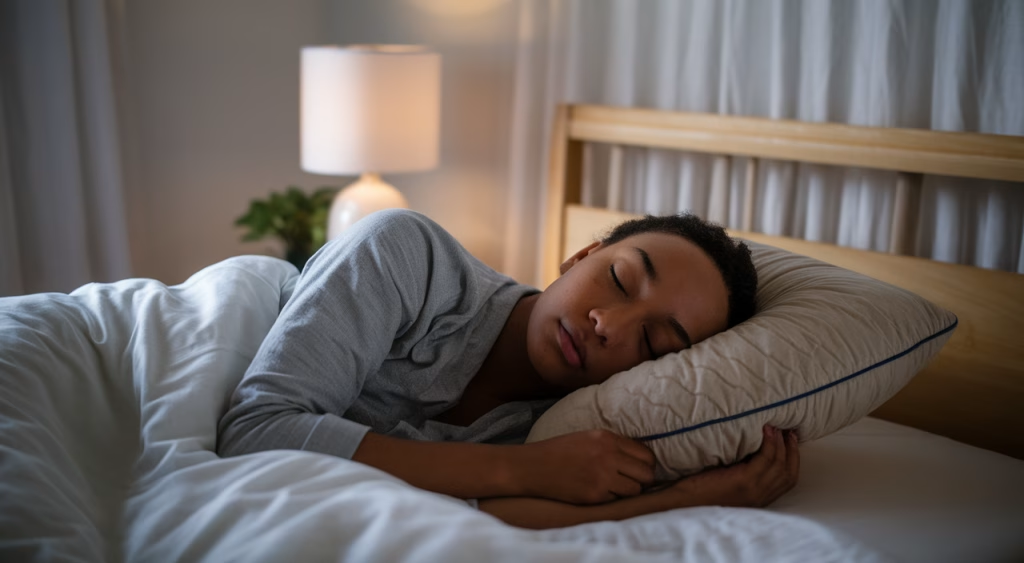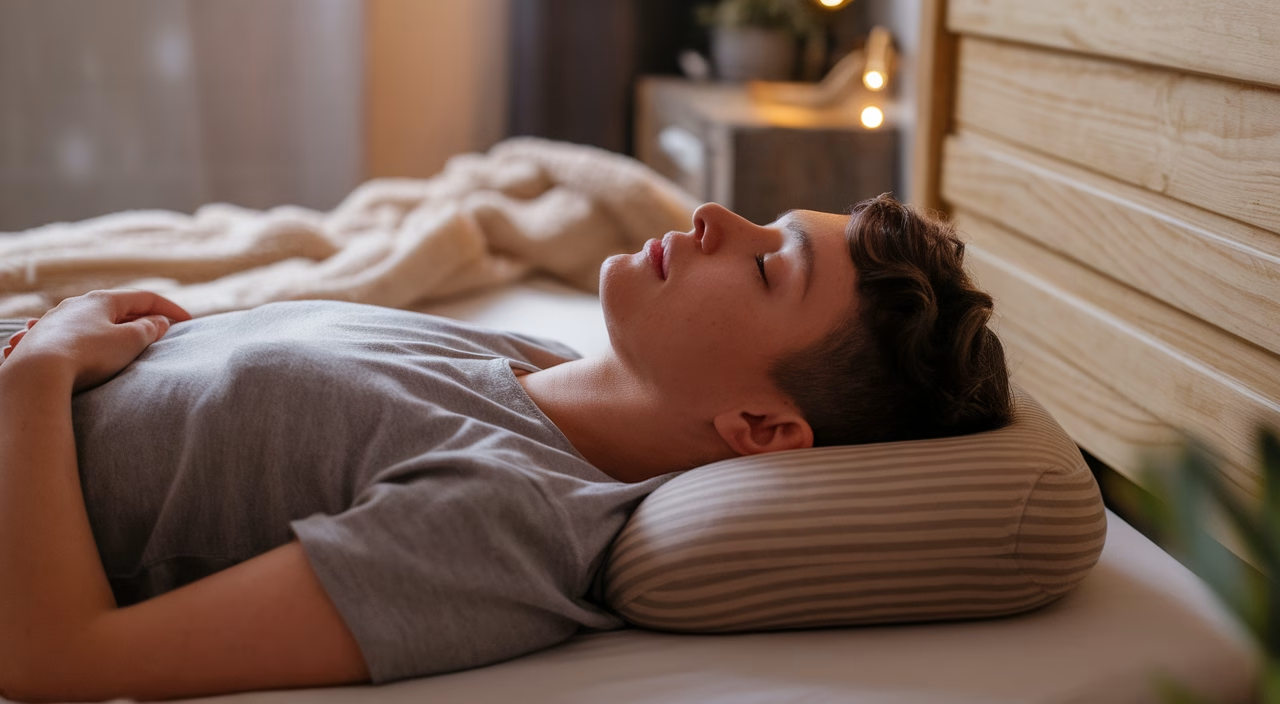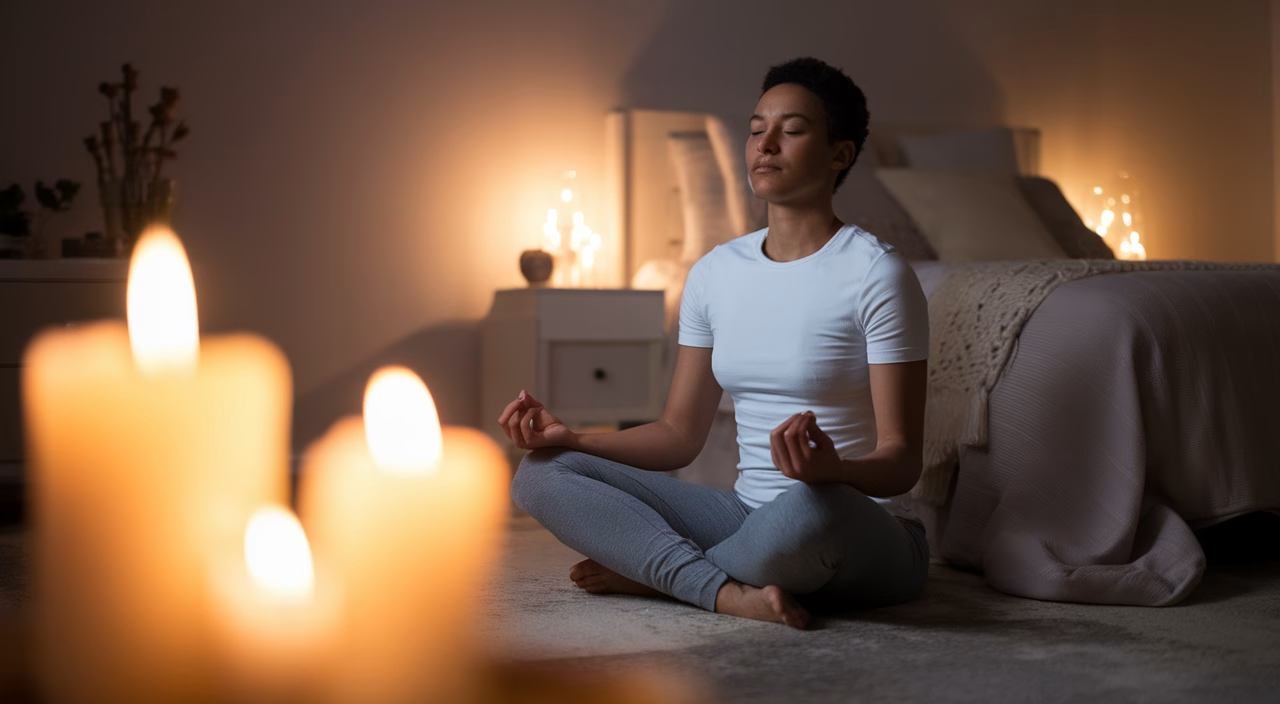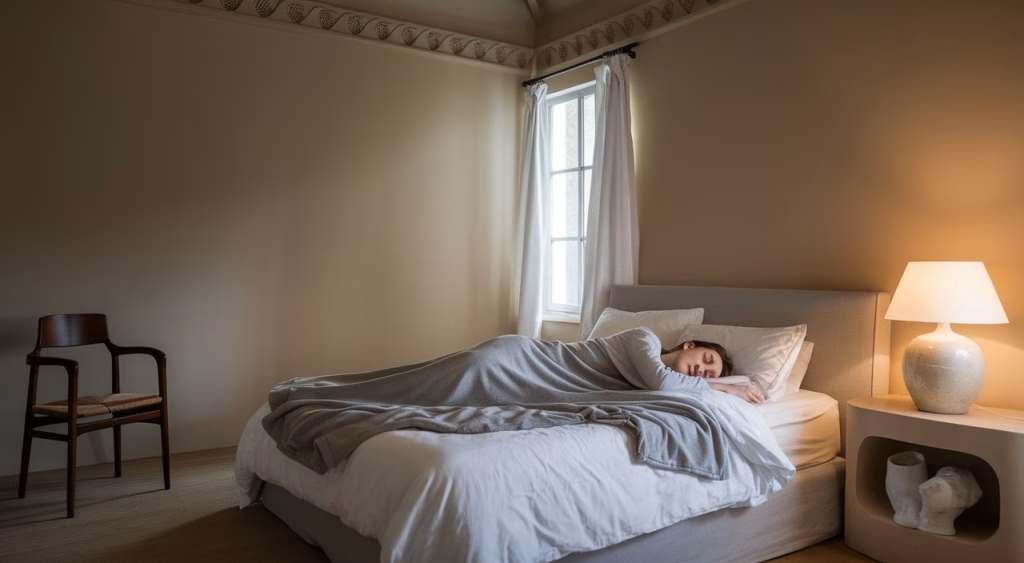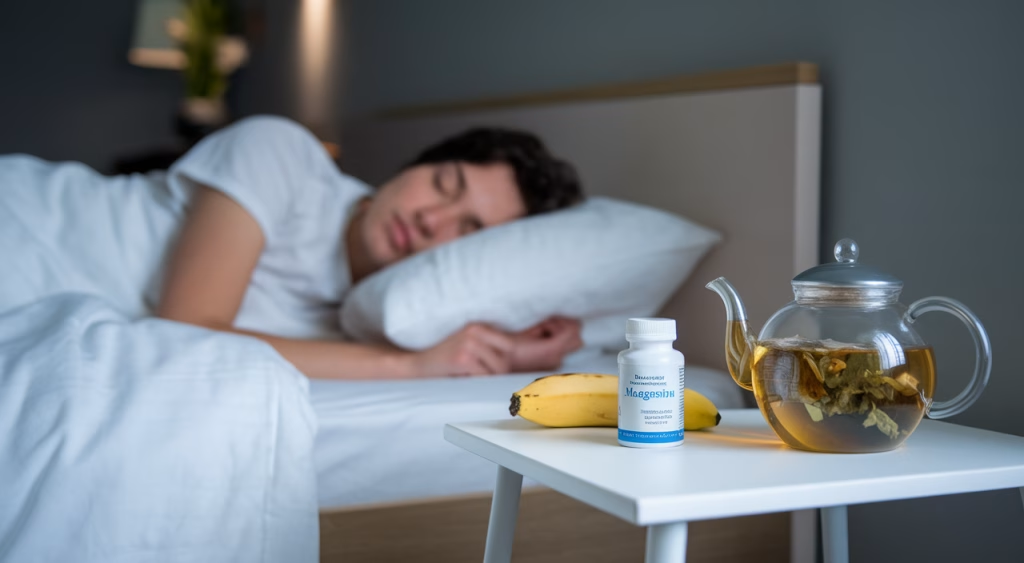Can the Right Pillow Really Prevent Snoring?
Yes, it can — and if you’ve spent enough nights elbowing yourself (or your partner) awake just to stop the sound, you already know how important this solution could be. A properly designed pillow to prevent snoring keeps your head and neck aligned, opens up your airway, and helps reduce those deep, disruptive vibrations of the throat that cause snoring.
TL;DR: Summary
- Right Support Matters: A pillow that aligns the cervical spine can significantly reduce snoring.
- Sleeping Position Impacts Snoring: Elevating the head or sleeping on your side helps prevent throat obstruction.
- Natural Adjustments Work: Combining the right pillow with breathing exercises, diet changes, and position training yields great results.
- Choose for Comfort: The best pillow for snoring relief is one that’s supportive but also comfortable enough to promote deep, restful sleep.
Understanding the Relationship Between Pillows and Snoring
How Does Pillow Height Affect Snoring?
Pillow height is more than a matter of comfort — it directly affects your breathing patterns throughout the night. Too high, and your cervical spine angle becomes compromised, narrowing the airway. Too low, and your tongue may fall back into your throat, creating the perfect storm for snoring. The ideal prevent snoring pillow maintains a moderate height that keeps your head slightly elevated and perfectly aligned with your spine, allowing for unrestricted airflow through the night.
The Impact of Cervical Spine Alignment
Your cervical spine alignment is the foundation of snore-free sleep. This crucial neck portion of your spine needs to maintain its natural curve to avoid tension and pressure on airways. A well-designed pillow to prevent snoring supports this optimal cervical spine angle, minimizing the collapse of soft tissues in the throat — the primary culprit behind chronic snoring. From a sleep specialist’s perspective, poor pillow choice is one of the most overlooked factors behind persistent snoring issues.
Choosing the Right Pillow for Snoring Relief
Best Pillow Types for Snoring
When selecting the best pillow for snoring relief, we recommend focusing on these proven options:
- Memory Foam Pillows: Contour perfectly to your neck, offering targeted support that reduces airway restriction while maintaining proper cervical spine angle.
- Wedge Pillows: Elevate the upper body naturally, helping gravity clear your airway for unobstructed breathing.
- Cervical Pillows: Specifically engineered to cradle the neck and improve spinal posture during sleep, making them excellent comfortable pillows to stop snoring.
Factors to Consider When Selecting a Pillow
Every snorer is unique, which is why choosing the right prevent snoring pillow involves more than buying the most expensive option. Consider these essential factors:
- Sleeping Position: Side sleepers benefit most from contoured support that maintains cervical spine alignment. Back sleepers should focus on gentle head elevation.
- Firmness Level: Too soft, and your head sinks compromising airway support. Too firm, and it may push your neck into an unnatural cervical spine angle.
- Material Quality: Hypoallergenic materials can help reduce congestion-related snoring triggers.
- Breathability Features: Overheating worsens snoring patterns. A breathable pillow maintains optimal temperature and airway openness.
Sleeping Positions and Techniques for Snoring Prevention
Adjusting Your Sleeping Position
Ever found yourself waking up on your back even though you swore you fell asleep on your side? You’re not alone in this struggle. Back sleeping encourages the tongue and throat tissues to relax backward — creating the perfect setup for disruptive snoring. Training yourself to sleep on your side can dramatically improve your snoring patterns, and the right pillow to prevent snoring or specialized body positioning cushions can support this transition effectively.
Using Pillows Effectively for Snoring Control
The secret isn’t just having a prevent snoring pillow — it’s using it strategically for maximum effectiveness. Your pillow should lift your head to maintain a clear, unobstructed passage from nose to lungs while preserving proper cervical spine angle. For side sleepers, we recommend placing a pillow between the knees to align the pelvis, reducing spinal strain and promoting better posture throughout your entire body.
Natural Remedies and Lifestyle Changes for Better Sleep
Diet and Exercise for Snoring Reduction
Weight gain, particularly around the neck area, can significantly narrow your airway and worsen snoring. Losing even five to ten pounds can dramatically reduce snoring intensity when combined with the best pillow for snoring relief. We also recommend avoiding heavy meals before bed, reducing alcohol consumption, and staying properly hydrated to decrease snoring severity.
Breathing Techniques and Relaxation Methods
Targeted nasal breathing exercises strengthen the muscles in your throat and nose, making them less prone to collapse during sleep. Try humming exercises, tongue strengthening movements (like pressing your tongue firmly to the roof of your mouth), and slow, controlled breathing patterns before bed. These techniques work synergistically with comfortable pillows to stop snoring by strengthening airway muscle control.
Enhancing Your Sleep Environment for Optimal Rest
Creating a Sleep-Inducing Bedroom Atmosphere
Environmental factors like noise, light, and temperature significantly interfere with healthy sleep patterns and can worsen snoring. Use blackout curtains, white noise machines, and carefully regulate humidity levels if your nasal passages tend to dry out at night. A peaceful, optimized environment supports deep sleep and reduces stress-triggered snoring patterns, maximizing the effectiveness of your pillow to prevent snoring.
Tips for Maintaining Healthy Sleep Habits
Consistency in your sleep routine is often underrated but crucial for snoring prevention. Going to bed and waking up at the same time each day helps regulate your biological clock and improve sleep quality. Avoid screens 30 minutes before sleeping and try meditative wind-down routines to promote calm breathing and deep relaxation — both essential elements in successfully combating snoring alongside your prevent snoring pillow.
Snoring Pillow Cost Guide
| Price Range | Type of Pillow | Typical Features |
|---|---|---|
| $20–$40 (Low-End) | Basic Foam or Polyester | Standard support, limited cervical design |
| $50–$80 (Mid-Range) | Memory Foam / Contoured | Snoring alignment features, breathable materials |
| $100–$150+ (High-End) | Ergonomic & Adjustable | Customizable height, hypoallergenic, cooling tech |
Final Thoughts: The Natural Route to Snoring Relief
Snoring doesn’t have to control your nights or strain your relationships. Between choosing the right comfortable pillows to stop snoring, maintaining proper cervical spine alignment, optimizing your sleeping positions, and fine-tuning your habits for sleep success — you have powerful, natural control over your rest quality. While snoring may be common, peaceful sleep doesn’t have to be rare. Every small change, from your pillow to prevent snoring choice to your breathing rhythm, brings you closer to restful, quiet nights. The best pillow for snoring relief combined with these natural techniques can transform your sleep experience. Sleep tight — and snore less.
Frequently Asked Questions
How does pillow height affect snoring?
Pillow height directly determines whether your airway stays open or becomes partially blocked during sleep. Too high causes neck bending and compromised cervical spine angle; too low allows throat collapse. A moderate height maintains proper airway alignment and reduces vibration that causes snoring.
What sleeping position is best to prevent snoring?
Side sleeping is typically most effective for snoring prevention. Back sleeping allows your tongue and throat tissues to fall backward, blocking the airway. The best pillow for snoring relief should support side sleeping and help train your body into healthier sleeping positions.
Can cervical pillows really help with snoring?
Absolutely. Cervical pillows maintain the natural curve of your neck and optimal cervical spine angle, supporting airway stability throughout the night. They reduce muscle compression and help keep your breathing passage unobstructed — making them highly effective comfortable pillows to stop snoring.
Is there a natural way to stop snoring using pillows?
Yes, combining the right prevent snoring pillow with natural breathing techniques, consistent side sleeping, and avoiding alcohol before bed creates a powerful foundation for natural snoring prevention without medications or devices.
Do memory foam pillows help reduce snoring?
Memory foam pillows can be very effective for snoring reduction. They mold precisely to your head and neck shape, promoting proper cervical spine alignment. This helps keep the airway open and reduces throat tissue collapse during sleep.
What other lifestyle changes can reduce snoring?
Regular exercise, weight management, maintaining proper hydration, and avoiding sedatives or alcohol before bedtime all help reduce snoring. Incorporating nasal breathing exercises alongside your pillow to prevent snoring can make a noticeable difference in sleep quality.
How do I know if my pillow is causing snoring?
If you notice increased snoring when using a particular pillow — especially if it leads to neck pain, poor sleep, or compromised cervical spine angle — it likely lacks proper support. Try adjusting the height or switching to a contoured prevent snoring pillow or wedge-style alternative.

